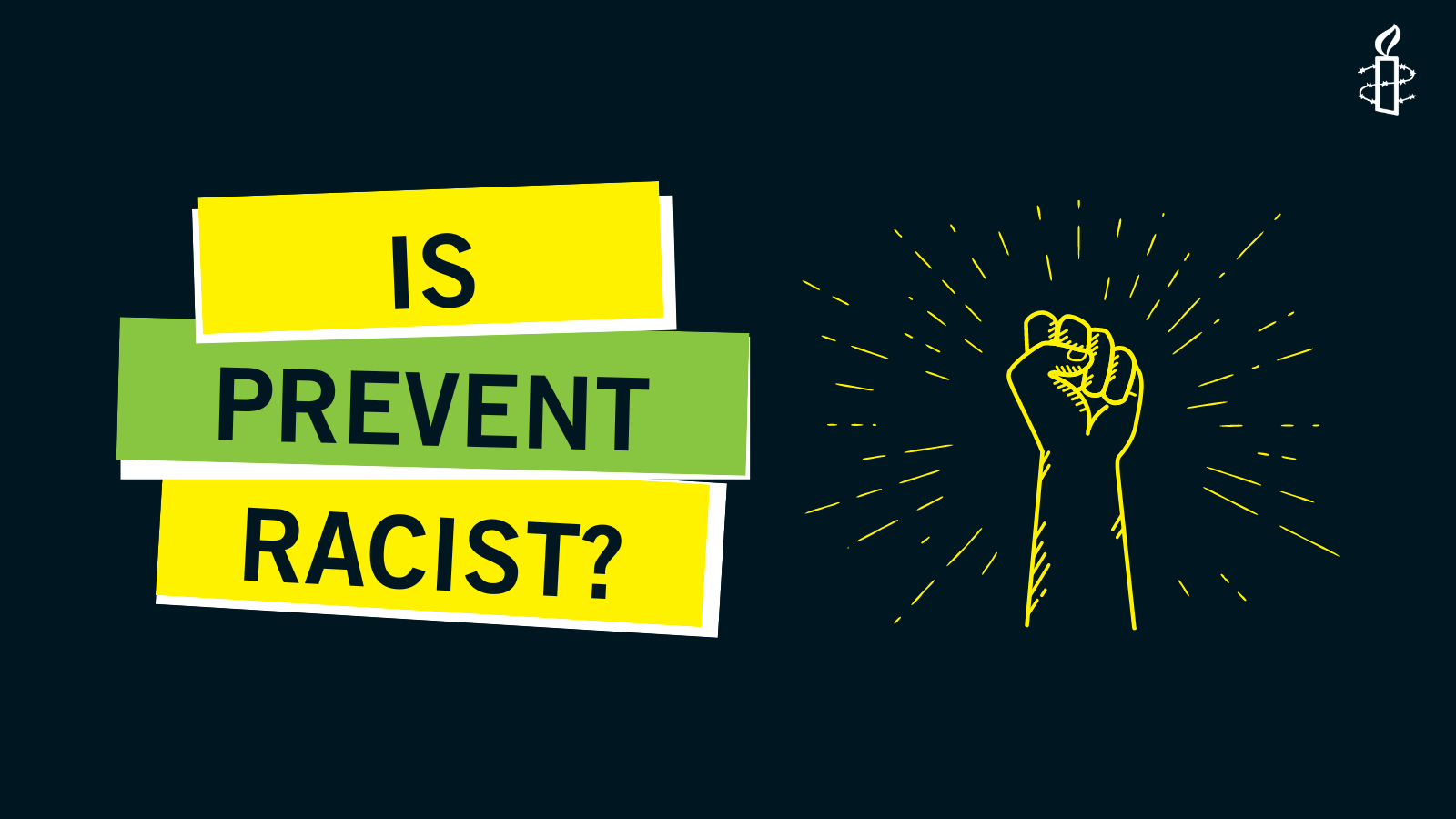Is the Prevent programme racist?

Do you have a thirst for adventure and excitement? Or want to explore your identity and sense of belonging? Have you ever felt the need to redress injustice? Perhaps through a particular cause or political group?
If you answered yes, then you've fulfilled at least some of the criteria to be flagged by the government's Prevent strategy - one strand of its overarching counter-terrorism strategy, CONTEST. The Prevent strategy seeks to pre-empt acts of terrorism by identifying those at risk of committing such attacks, including by "intervening to stop people moving from extremism into terrorist-related activity."
How the Prevent strategy process works in practice
As part of the Prevent strategy, schools, universities, GP clinics, local authorities and other institutions are under a duty to refer individuals who are at risk of being “drawn into terrorism." Their employees - including teachers, academics, doctors and counsellors - must watch out for the “signs” of potential radicalisation, which are based on the Extremism Risk Guidelines (ERG22+). These guidelines include factors like “a need to redress injustice," “the need for excitement, comradeship or adventure” and “over identification with a group, cause or ideology." Prevent referrals are then assessed by local counter-terrorism police.
The criteria for identifying "pre-terrorists" is broad, vague and widespread
Clearly, these factors are alarmingly common, especially among younger people. Because the criteria for identifying "pre-terrorists" is so broad, vague and widespread, those tasked with making Prevent referrals must use their own discretion and rely on their gut instincts.
Broad discretion in decision-making embeds racism into our institutions. When police officers can exercise their discretion to choose who to stop and search, young black men are targeted. Prevent is no different.
Muslims disproportionately targeted by the Prevent programme
Our media – from news to popular culture – is saturated with stories that associate Muslims with “extremism” and violence. The 2018 British Social Attitudes Survey found that 17% of respondents had a negative personal attitude towards Muslims, the highest of any religious group.
It is no wonder that there is a bulk of evidence that Muslims are disproportionately targeted by the Prevent programme. According to Home Office data, young people – those under 20 – are also disproportionately affected, making up 49% of referrals. Rather than address this disproportionality, politicians have called for Prevent to be expanded to include anyone who “vilifies Britain” or talks about “white privilege."
People with political views or activism deemed too “radical” are already being impacted
Prevent is already impacting people with political views or activism deemed too “radical." In 2019, Lynn Jenkins, a retired doctor, was referred to Prevent by his local NHS trust after telling his therapist that he was involved in Extinction Rebellion protests.
We want to know exactly how the Prevent strategy is impacting free speech and the right to protest and how marginalised groups may be at a particular disadvantage. And we need your help! Next month, we’ll be launching an online survey as part of our ongoing in-depth research project into Prevent – watch this space.
Our blogs are written by Amnesty International staff, volunteers and other interested individuals, to encourage debate around human rights issues. They do not necessarily represent the views of Amnesty International.
0 comments